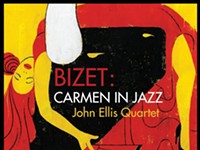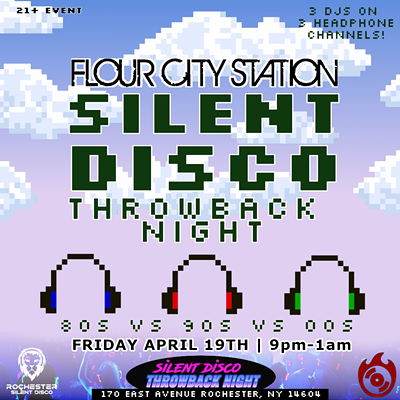[
{
"name": "500x250 Ad",
"insertPoint": "5",
"component": "15667920",
"parentWrapperClass": "",
"requiredCountToDisplay": "1"
}
]
You might say Michael Feinstein was born to champion the Great American Song Book. But you would be a bit late.
"My interest in the Great American Song Book started in the womb," says Feinstein, who joins the Rochester Philharmonic Orchestra for a Gershwin Celebration on May 29 and 30. "By the time I was five I was already immersed in that body of music."
Feinstein played those classic tunes in his late teens at a piano bar in his hometown of Columbus, Ohio. But as if in a time warp from a Hollywood movie, he would soon find himself at the center of what was left of the music scene he loved.
After moving to Los Angeles at the age of 20, Feinstein took a job as a piano salesman. One day he stopped into a Hollywood record store and found a rare cache of private recordings that had belonged to pianist Oscar Levant.
A secretary at the piano store put him in touch with Levant's widow who, impressed with Feinstein's knowledge, was soon introducing him around town as her protégé.
"She took me to Sam Goldwyn Jr.'s house where I played the piano on which George Gershwin had played 'Love Walked In' for Sam Goldwyn when he was auditioning it for 'The Goldwyn Follies.'"
She introduced him to legendary Hollywood stars like Dolores del Rio and Ann Southern and to then 80-year-old Ira Gershwin and his wife, Leonore. The Gershwins hired him to catalog their record collection.
But something else happened.
"Ira was in a deep depression and here comes this 20-year-old kid who knows all about his work and he suddenly started to come back to life," Feinstein says. "Leonore took me aside after a couple of weeks and said, 'You've given my husband new life and I want you to stay in this house as long as you can and just keep Ira happy and keep busy.'
"So I did. I spent time talking to him, entertaining him, becoming his eyes and ears to the outside world, and creating a relationship that laid the groundwork for everything to come in my career."
When you hear the name Gershwin, you might first think of the great composer, George. But it was Ira who wrote brilliant lyrics for songs like "Love Is Here to Stay" and "But Not For Me." Did he realize just how good he was?
"He had pride for his work," Feinstein says. "But he was not in any way boastful and he considered his contribution small compared to George's. He knew he did his job well but he always felt that George was such an extraordinary meteor in music and unique in such a gargantuan way that he downplayed his own contribution."
Feinstein is now a leading expert on the Gershwins and a fount of information about their work. For instance, "Porgy and Bess," the opera they wrote (along with Edwin DuBose Heyward), is considered a classic today, but according to Feinstein, it might never have happened.
"George had read the novel in 1927 and he had an immediate desire to create a musical work from it," Feinstein says. "Shortly thereafter he decided it should be an opera. He wasn't ready early on so he started to write it in 1934.
"Everybody kept saying you're crazy — what are you doing this for? Everybody was opposed to it, the African-American community, the Tin Pan Alley guys, the Metropolitan Opera. So it was all driven by George's vision.
"Earlier it was going to be a black-face musical with Al Jolson by [Jerome] Kern and [Oscar] Hammerstein. Hayward would have accepted that; he needed money during the depression. It was Gershwin who turned it into this masterwork."
George Gershwin died of a brain tumor in 1937 at the age of 38.
"For whatever reason, it was determined, I believe divinely, he was supposed to pass at that time," Feinstein says. "I don't know why and it is absurd that he did not have the opportunity to share more because there was so much more.
"That was the thing that depressed Ira the most next to the physical loss because Ira obsessed over what George might have written and what they were going to write. It was also the loss of Ira's creativity because Ira was always spurred by George's energy. Ira was never the same after that."
There have been great songs written since that golden age, but Feinstein believes tunes by the Gershwins, Cole Porter, Irving Berlin, and so on, are in a class by themselves.
"Those songs came out of an era of operetta and beautiful melodies," Feinstein says. "But lyrics were not as clever or well-crafted before that time. It was a ripe moment for American culture and the melting pot of this country to integrate into the European traditions of popular song and musical theater.
"So it was the cultural contribution, the melding of so many different immigrants and the energy and vitality of New York and America and the belief in the American Dream, that anything's possible, that ignited these creators in a way that was extraordinary. It was also a work ethic; you can't underestimate the craft."
Feinstein explores the craft of songwriting with today's musicians every week on his radio show, "Song Travels." (Saturdays at 10 a.m. on WXXI 91.5 FM).
"I have to make allowances for contemporary writing because very few people rhyme perfectly today and it's a different time. Sometimes there are things I don't like but I focus on what I do like."
That's not to say Feinstein has no recent favorites.
"Jimmy Webb is a phenomenal writer; he's a musical chameleon in the best sense of that word. Billy Joel is a fantastic songwriter. There are Lennon and McCartney songs that I think are wonderful. Joni Mitchell, Neil Sedaka — they're songs for a different time.
"In terms of keeping the same level of craft, one generally has to go to the theater writers, and Sondheim is still with us, but that level of craft is generally gone. Jason Robert Brown is an extremely talented writer, Adam Guettel, Ricky Ian Gordon ... But there are not pop writers who write with that craft because rhyming in pop music is anathema."
Speaking of...
Latest in Music Features
More by Ron Netsky
-

Album Review | 'Bizet: Carmen in Jazz'
Mar 26, 2024 -
'To Swing Is the Thing" by Mike Melito
Aug 10, 2023 - More »








